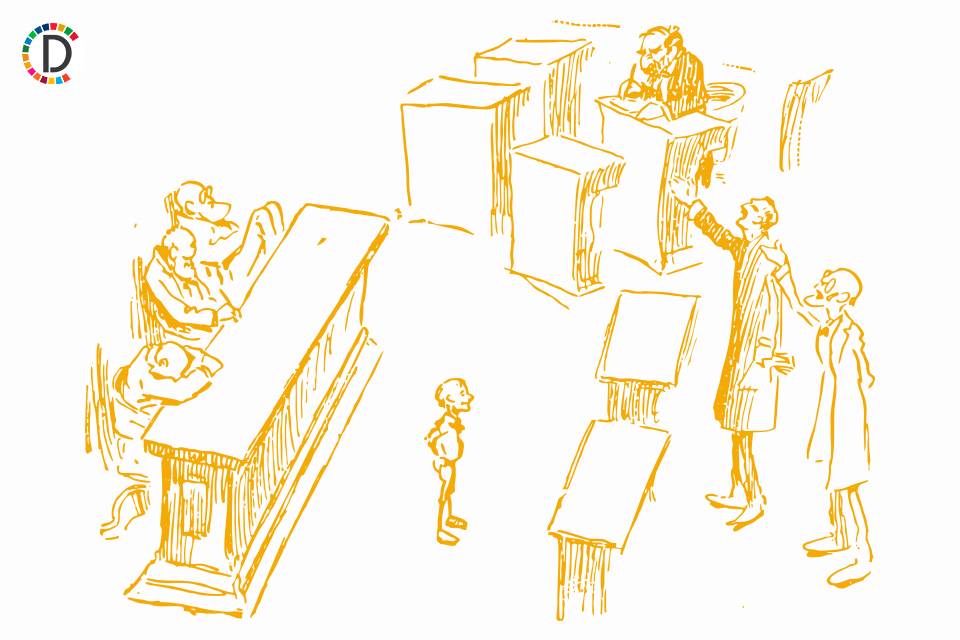FACTBOX-National security trial of Hong Kong media tycoon Jimmy Lai: what's happened so far
Prosecutor Anthony Chau described Lai as a "radical" and alleged he was at the centre of conspiracies to collude with foreign forces and publish seditious material in the Apple Daily newspaper he founded. Chau alleged that Lai used "the guise of fighting for freedom and democracy" to request that foreign countries, in particular the United States, impose sanctions or engage in other hostile activities against Hong Kong and China.

Hong Kong media tycoon and pro-democracy advocate Jimmy Lai is on trial accused of endangering China's national security.
Lai, 76, has pleaded not guilty to two charges of conspiracy to collude with foreign forces - which carry a possible life sentence - and a lesser charge of conspiracy to publish seditious material. Over two months into the high-profile trial, the prosecution has laid out its case of Lai's alleged collusion with foreign forces, which it says included meetings with U.S. officials in Washington during the presidency of Donald Trump.
WHY DOES IT MATTER? The trial is widely seen as a landmark national security case after Beijing imposed laws on the financial hub in 2020 following months of protests in 2019.
Lai has long been an outspoken critic of China's Communist Party and is the highest-profile figure to face prosecution under the law. Diplomats are watching developments closely. Hong Kong's former colonial ruler Britain and the United States have called for Lai's immediate release, saying the case is politically motivated. Hong Kong officials say Lai will receive a fair trial.
WHAT IS THE PROSECUTION'S CASE? Prosecutor Anthony Chau described Lai as a "radical" and alleged he was at the centre of conspiracies to collude with foreign forces and publish seditious material in the Apple Daily newspaper he founded.
Chau alleged that Lai used "the guise of fighting for freedom and democracy" to request that foreign countries, in particular the United States, impose sanctions or engage in other hostile activities against Hong Kong and China. The court heard that one example of Lai's alleged collusion was a meeting he held with Trump's Vice President Mike Pence and Secretary of State Mike Pompeo in July 2019 to discuss an extradition bill proposed by the Hong Kong government.
The bill would have allowed people in Hong Kong to be sent to mainland China to face trial in courts controlled by the Communist Party. It sparked mass pro-democracy protests in Hong Kong and was withdrawn. WHO IS THE PROSECUTION LINKING WITH LAI?
The prosecution listed agents and intermediaries of Lai, including former U.S. Army General Jack Keane, former U.S. Deputy Defense Secretary Paul Wolfowitz, founder of the Hong Kong Watch rights group Benedict Rogers and former U.S. Consul General to Hong Kong James Cunningham. Commenting from outside Hong Kong, Cunningham and Rogers said Lai's interactions were normal, legal activity. Prosecutors also identified a syndicate led by Lai, which they said included activists, his aide, rights campaigners, a Japanese congresswoman and a U.S. financier. The prosecution case says these people contacted the U.S., Britain, New Zealand, Australia, Japan, Czech Republic, Portugal and Ireland to impose sanctions or take other hostile action against Hong Kong and China.
Prosecutors described Lai as "the mastermind and financial supporter at the highest level command of the syndicate". One count of collusion said Lai had links to a group the prosecution named as "Stand With Hong Kong Fight For Freedom" (SWHK), which it said lobbied countries for sanctions on China and Hong Kong.
Mark Simon, Lai's personal assistant and a U.S. citizen, executed his instructions and vetted requests for financial support, according to prosecutors. SWHK invited foreign politicians to come to Hong Kong to observe protests and monitor district elections in 2019 while sponsoring students to meet politicians in Geneva, Berlin, Paris, London and Washington, the prosecutors said.
Prosecutors also said Lai used Apple Daily as a platform to conspire with three of its subsidiaries, six former executives linked to the newspaper, and staff members Mark Simon, Nick Cheung and Simon Lee and others to collude with foreign forces. WHAT HAPPENS NEXT?
Cheung Kim-hung, the former CEO of Apple Daily's parent company Next Digital and the first prosecution witness, ended 12 days of testimony on February 2. Cheung denied being asked by police to become a prosecution witness when he was remanded in the Lai Chi Kok Reception Centre.
Cheung said earlier he had been instructed by Lai to call people to join protests in 2019 and draw the attention of Western democracies. Chan Pui-man, the former associate publisher of Apple Daily and the second prosecution witness, ended 15 days of testimony last Friday.
Chan said Lai had "final say" over editorial directions. Yeung Ching-Kei, the former editorial writer of Apple Daily began to testify on Monday.
Yeung said Lai instructed him to invite overseas writers when he said that there were not enough writers after the adoption of the national security law. Other prosecution witnesses are expected to include Chan Tsz-wah, a paralegal allegedly used by Lai as a middleman, and Andy Li, a co-founder of SWHK.
Lai's international lawyers appealed in January to the United Nations expert on torture over Li's treatment while in prison in mainland China.
(This story has not been edited by Devdiscourse staff and is auto-generated from a syndicated feed.)
ALSO READ
BJP, Shiv Sena, and NCP win 207 posts of municipal council presidents in local body polls: Maharashtra State Election Commission.
JM Financial's Bold Move: AIF Platform Targets Real Estate's Capital Gap
Saluting Courage: The Indian Army's Unyielding Spirit on Army Day
Blaze Disrupts BSNL Services Across Southern States
All states asked to monitor elephant movement on railway tracks, authorities directed to coordinate with forest depts: Bhupender Yadav.










